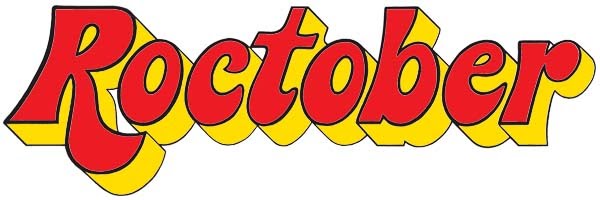(Touchstone) (GUEST REVIEW by CARRIE GOLUS)
Apparently I am very lucky to be able to review Late, Late at Night, the new Rick Springfield autobiography. When Jake Austen sent out an email asking if anyone was interested, he was amazed at how many people wanted to do it. So amazed, that he interviewed us all and wrote an article for Time Out about it.
The other potential reviewers actually had much better reasons than I did. One of them, for example, raved about Zoot, Springfield’s late sixties band in his native Australia.
I had neither obscure musical knowledge nor a passion for Springfield’s music. I was just idly curious. In the early days of MTV, when I was in junior high school, he had loomed so large. And then he disappeared. Where? Why? And a few weeks before Austen’s email hit my in-box, I had come across an article about Springfield’s book, which mentioned that his wife of 26 years—that caught my attention too, 26 years—had refused to read it. What could be so awful? And if it had been so awful, why would she stay?
“When I turned fifty,” reads the author’s note, “I wrote a song about my life so far, to see if I could fit it into a three-minute pop tune. I could.” He called the song “My Depression.” Most lyrics, when printed, are bad. These are very, very bad. I stopped reading the book, and didn’t return to it for weeks.
Which was unfair, because Springfield’s early life is outrageously interesting. Young Rick Springthorpe (the leader of one of his first bands renamed him “Springfield,” with the reasonable argument that everyone would get it wrong anyway) grows up in an Australia that he doesn’t seem old enough to fit. Milk is delivered by horse and cart, then stored in an icebox. When his family buys the first television in the village, all the neighbors come over to watch it.
In an odd moment during this backwater childhood, Springfield’s fourth-grade teacher asks him to stay after school. Having just purchased a new belt to discipline her students, she wants him to hit her with it, so she can test how it feels. Hmmm. Springfield doesn’t connect this incident, or another inappropriately early sexual experience, to his later sex addiction. But for the therapy-minded, it’s certainly there.
In another chapter—so bizarre, that it seems almost unbelievable—Springfield, age 17, joins a band called MPD Ltd, which promptly leaves for Vietnam. The year is 1968. Much later, Springfield discovers that the promoter hires unsuspecting Australian bands, sending them to parts of the war zone where the USO refuses to go. The only thing worse than being awakened by mortars and rockets, Springfield writes, “is having them land around us when we’re playing a gig.”
Springfield survives and soon afterward, moves to the United States. I had not realized that his eighties career was actually a comeback—in the early seventies, he has an even frothier career, when he is marketed as the next David Cassidy, complete with the teen magazine interview, “Rick Springfield: Is he too tall to love?” When this career wanes, he returns to Australia and has plastic surgery, at age 23.
Springfield wrote the book himself, without the assistance of a ghost writer, as the press material points out. His style takes a bit of getting used to—for example, trying to make a living as a musician, he writes, “has been like trying to suck pregnant goats through a garden hose”—but it’s genuine. His anecdotes are often perfectly paced, such as the story about trying to buy a button-down shirt that would fit his dog (for the photo shoot for Working Class Dog, of course). Springfield also explains the stories behind a few of the songs—though not all of them—so fans will know definitively that “Jessie’s Girl” was indeed inspired by a real girl, but that her boyfriend was called Gary.
If you like your books to have a happy ending, you should stop reading around p. 211. At that point, in the mid-1980s, Springfield is equally famous for his Top 40 hits and his role on General Hospital. Springfield is a likable guy. You want him to win and keep on winning. And yet you know he can’t. He loses his record deal and his expensive house. He plays Vegas. He has more plastic surgery. The surgeon promises to make him look years younger, leaving out the possibility “that I could also end up looking like a stretched-lizard-faced freak,” which, honestly, in some photos, he kind of does.
Toward the end of the book, the time periods get longer, but less and less happens. He meets a seven-year-old girl, Sahara, who develops cancer; he holds a series of benefit concerts. Most of his own two sons’ childhood is skimmed over. It’s unclear why.
At one point, he is asked to appear on an Oprah episode about one-hit wonders, and quite rightly, he refuses: “I toy with the idea of sending them an email with the titles of my seventeen Top-40 friggin’ hits poetically woven through…underlining the fact that I am a waaay bigger star than they think I am.” He does agree to be interviewed for VH1’s Behind the Music. And his book in fact follows the Behind the Music formula—early struggles, success, failure, redemption—but without too much in the way of redemption.
Springfield still seems to be struggling with his depression, his addictions, his loving but dysfunctional marriage. Still seems to be longing for fame that probably won’t return. How does the book end? I can barely remember. I want him to surprise us, though. I want him to surprise us all.



No comments:
Post a Comment